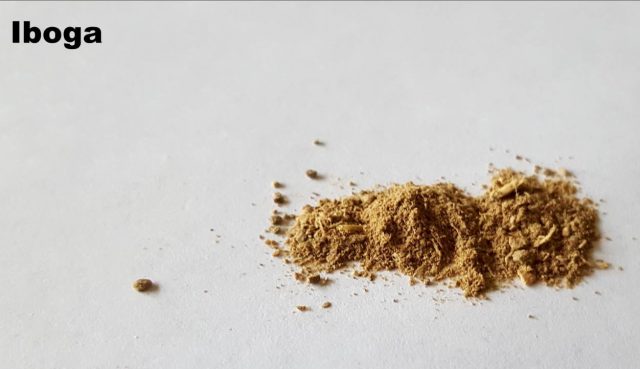The plant kingdom, especially in the African continent, since time immemorial, has been a primary source of vital substances that have kickstarted major drug breakthroughs, such as the medically-based Ibogaine Treatment in the world-famous iboga treatment center in Cancun.
It’s not just Ibogaine that’s come out of Africa; there’s the antimalarial drug artemisinin, opiate pain reliever morphine, and cancer chemotherapeutic taxol, essential drugs derived from plants, that have impacted global medical solutions in a big way.
Africa boasts 25% of the world’s plant genetic resources. We are accounting for more than 45,000 herbs and roots and 5,000 plant species that feed traditional African herbal medicine, protecting global health. Here, we highlight some of these fascinating plants.
Siphonochilus Aethiopicus (African Ginger, Wild Ginger)
Native to 30 African countries, wild ginger treats a spectrum of health conditions like respiratory issues, pain, inflammation, and Malaria; this plant boasts remarkable compounds in the root and rhizome that are prime ingredients of the plant’s essential oil.
Both bronchial asthma and allergic conditions are treatable using African ginger’s bioactive compounds, siphonochilone and eucalyptol.
Pelargonium Sidoides (South African Geranium)
The Geranium indigenous to South Africa has root tubers sourcing ingredients helpful in treating intestinal disorders, respiratory problems, liver issues, and menstrual cramps, among other medical conditions.
Medicinal Geranium is particularly effective in alleviating symptoms of inflammation of the nasal cavity and sinuses and acute bronchitis, and the most popular over-the-counter Laloba and Umcka are sold globally as one of the most potent African herbs and immune system boosters.
Sceletium tortuosum (Kanna, Kougoed)
Kanna is a succulent herb native to the semi-arid regions of South Africa. The key ingredient, a family of alkaloids, has psychoactive mood-stimulating properties that are popular in treating stress, anxiety, and pain-related disorders and is also used as a dietary supplement to elevate mood, combat stress, and improve impaired cognitive abilities. Zembrin is the most popular extract that mitigates the downsides of mood swings, promotes focus, and improves general well-being.
Griffonia Simplicifolia (Atooto, gbogbotri, kajya, kanya, kwakuo-aboto)
Griffonia is a herbaceous vine native to West and Central African countries like Benin, Cameroon, Côte d’Ivoire, Gabon, Ghana, Liberia, Nigeria and Togo. It is a precious source of ingredients fueling healing preparations in African herbal medicine.
Griffonia seeds remedy diarrhea, stomach aches, and dysentery; the key ingredient is also essential to aphrodisiacs. The 5-hydroxy-L-tryptophan from seeds stimulates the neurotransmitter serotonin, which helps heal sleep disorders, improve appetite, relieve pain, and enhance mood.
Catharanthus Roseus (Madagascar Periwinkle)
The Periwinkle, native to Madagascar, is a herbaceous plant known as bright eyes, Cape periwinkle, graveyard plant, old maid, or pink Periwinkle. Catharanthus is valued as an ornamental plant with great medicinal value.
The Periwinkle’s intense concentration of phytochemicals gives it potent antioxidant, antimicrobial, antidiabetic, and anticancer properties helpful in combating rheumatism, diabetes, skin-related issues, and venereal diseases.
The Periwinkle’s alkaloids vincristine and vinblastine became the first plant-sourced anticancer agents harvested for clinical trials.
Artemisia Afra (Mugwort, African Wormwood)
The African Wormwood is a popular and highly aromatic perennial herb. The lone species in its genus is indigenous to Africa and distributed widely from Ethiopia to South Africa.
The plant’s popularity dates to its extensive use in traditional African medicine for building resistance to coughs, colds, influenza, and Malaria.
African natural herbs like wormwood are prized for their antimicrobial, anti-depressant, antioxidant, and anti-inflammatory action, spawning innumerable African herbal remedies sold commercially.
Extracts from African leaves of the wormwood variety showed an inhibitory activity against the SARS-CoV-2 COVID-19 virus, and clinical studies are underway.
Strophanthus (Kombe Arrow Poison)
Strophanthus, a fast-growing herb of the evergreen climbing variety, grows mainly on the West coast of Africa, stretching from Senegal to Congo.
When we speak of African herbs and their uses, miracle drugs have emerged from extracts of the Strophanthus Kombe. These extracts are deployed widely for their antimicrobial, wound-healing, antioxidant, analgesic, and anticarcinogenic properties to combat snake bites, sores, gonorrhea, constipation, and fever. The root of the Kombe is famed for its aphrodisiac benefits.
Strophanthus is also known for the presence of cardiac glycosides in its seeds, prominent among them being ouabain, which stimulates the heart and increases the pumping output, leading to its widespread use in treating heart failure and irregular heartbeat. The extracts are also beneficial in treating metastatic prostate cancer.
Conclusion
Africa’s contribution to culinary and medicinal traditions rooted in ancient sciences is often unspoken and unheralded, but its influence is inestimable. Transatlantic traders popularized African herbs and roots beyond the continent’s borders.
It’s fascinating to observe how African herbs and roots appear in the global health ecosystem, and Ibogaine is a classic example. By exploring 7 of the most popular herbaceous plants, we attempted to show you how the most heralded medical discoveries in the world have deep African roots.


